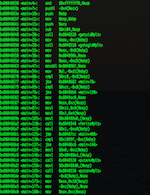EC 521: CyberSecurity, Fall 2025



Instructor
Manuel Egele
For correspondence, post to the piazza course site.
Graduate Student Teacher (GST)
- Alireza Roshandel
- TBD
- by appointment @ PHO337
Internet security has become part of everyday life where security problems impact practical aspects of our lives. Even though there is a considerable corpus of knowledge about tools and techniques to protect systems, information about what are the actual vulnerabilities and how they are exploited is not generally available. This situation hampers the effectiveness of security research and practice. Understanding the details of attacks is a prerequisite for the design and implementation of secure systems.
This course deals with common programming, configuration, and design mistakes and ways to detect and avoid them. Examples are used to highlight general error classes, such as stack and heap overflows.
Possible protection and detection techniques are examined. The course includes a number of practical lab assignments where participants are required to apply their knowledge as well as a discussion of the
current research in the field. Students will learn how the security of systems can be violated, and how such attacks can be detected and
prevented.
The course aims to make the students "security aware", and gain an in-depth understanding about security issues.
Tentative Syllabus
- Introduction & Principles
- Reconnaissance
- Unix Security Part
- Web Security Part
- Memory - Operational Semantics & Stack
- Memory - Assembly Primer
- Memory Corruption - Vulnerabilities
- Reverse Engineering
- Mobile Security
- Malware
With Topics On
- Operating system security and vulnerabilities (UNIX, Windows, stack and heap overflows)
- Windows Security
- Buffer Overflows (including Heap overflow)
- Testing
- Reverse engineering and binary analysis
- Viruses, worms, malware and malicious code
- Botnets
- Language security
- Web security
Operating Systems knowledge (e.g., EC440) Knowledge of C useful, C++ less useful
Basic SQL knowledge
Basic web programming knowledge
Tuesday & Thursday 09:00 -- 10:45, PHO 205
Labs (by announcement only)
09/04/2025 Class 0x02 -- Principles of Security (download slides)
09/09/2025 Class 0x03 -- Reconnaissance (download slides)
09/11/2025 Class 0x04 -- Unix Security I (download slides)
09/16/2025 Class 0x05 -- Unix Security II (download slides)
09/18/2025 Class 0x06 -- Unix Security III (download slides)
09/23/2025 Class 0x07 -- Web Security 1 (download slides)
09/25/2025 Class 0x08 -- Web Security 2 (download slides)
09/30/2025 Class 0x09 -- Web Security 3 (download slides)
10/02/2025 Class 0x0a -- Assembly Review (download slides)
10/07/2025 Class 0x0b -- The Stack (download slides)
10/09/2025 Class 0x0c -- Stack Smashing (download slides)
10/16/2025 Class 0x0d -- Payloads for Stack-based Buffer Overflows (download slides)
Practical Challenges (Homework Assignments)
Students will "need" to solve a set of practical challenges (assignments) in the lab part of the course.For more information on the challenges and the grading, check this page.
The current challenge is Challenge 1. The course grade will be based on:
40%: 8 practical security challenges
20%: Security Project
15%: Midterm exam
20%: Final exam
5%: Participation
Registration details will be announced via e-mail to the registered participants.
Last Modified: Sat Aug 30 13:54:16 EDT 2025